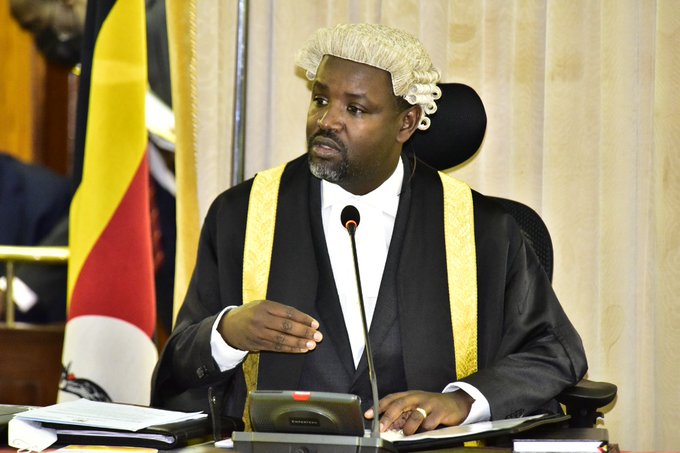Parliament has directed the Ministry of Education and Sport to present a statement regarding the list of expired courses released by the National Council for Higher Education.
While chairing the plenary session on Tuesday, May 23rd, the Deputy Speaker of Parliament, Thomas Tayebwa, said Ugandans are panicking following the release.
“The Minister should present a statement on the issue of “expired” degrees. We need to reassure Ugandans that their degrees are genuine. It is very scary, and so we need to be reassured,” said Deputy Speaker Tayebwa.
On May 20, 2023, the National Council for Higher Education (NCHE) in Uganda released a list of expired programs in various institutions following the upgrade that was announced.
In the circular, the NCHE maintained that students who had enrolled in the courses or completed them would face limitations in their academic pursuits.
It further indicated that students who have graduated from expired programs or spent more than two years enrolled in the course will be required to obtain and follow the prescribed procedures outlined by the NCHE, the Ministry of Education and Sports, and the university itself in order to seek approval for their courses.
According to the circular, several learning institutions across the country, including Makerere, Gulu, UCU, Cavendish, IUIU, KIU, Busitema, Bishop Steward Mbarara, Bishop Barham, Ankole Western, and Avance International Universities, among others, are affected.
Some of the courses listed by the NCHE as expired include master of instructional design and technology, bachelor of youth development work, master of science in disaster risk management, bachelor of science in tourism and hospitality management, and bachelor of science in forestry.
Others are the postgraduate diploma in project planning and management, the Master of Arts in Public Administration and Management, the Bachelor of Science in Education—Economics, the Bachelor of Applied Sciences—Chemistry, among others, the Bachelor of Education (Foundation of Teacher Education) teacher education, the Diploma in Education Primary Education (distance education), and the Diploma in Music and Theater Art, among others.
Dr. Simba Ssali Kayunga, a Makerere University Don, said much as the policy is good, it is likely to attract legal issues.
He says students are most likely to petition the court to protest the policy.
“This is a good policy; however, students are likely to go to court, and universities will incur a lot of expenses,” he said.
The University Don advised that institutions will need to negotiate with NCHE in order to harmonize the challenges that may come with the new policy.
Patrick Lumumba, a lecturer at the school of social science at Makerere University, said that it is part of the universities’ policies to revise courses and have some merged.
“Universities constantly revise courses; some courses have already been merged, and the Vice Chancellor has been talking about the issue of revising these courses. For instance, the courses that were offered in the 1990s are not the courses being taken today. So the policy has been there, and there’s nothing new,” he said.
Jane Nabeta, a student at Cavendish University pursuing a Bachelor of Laws, said that as students, they will consider advancing their academic courses in other countries that have not implemented the policy.
“Someone can advance from somewhere else, like other countries where the policy has not been applied,” she said.















